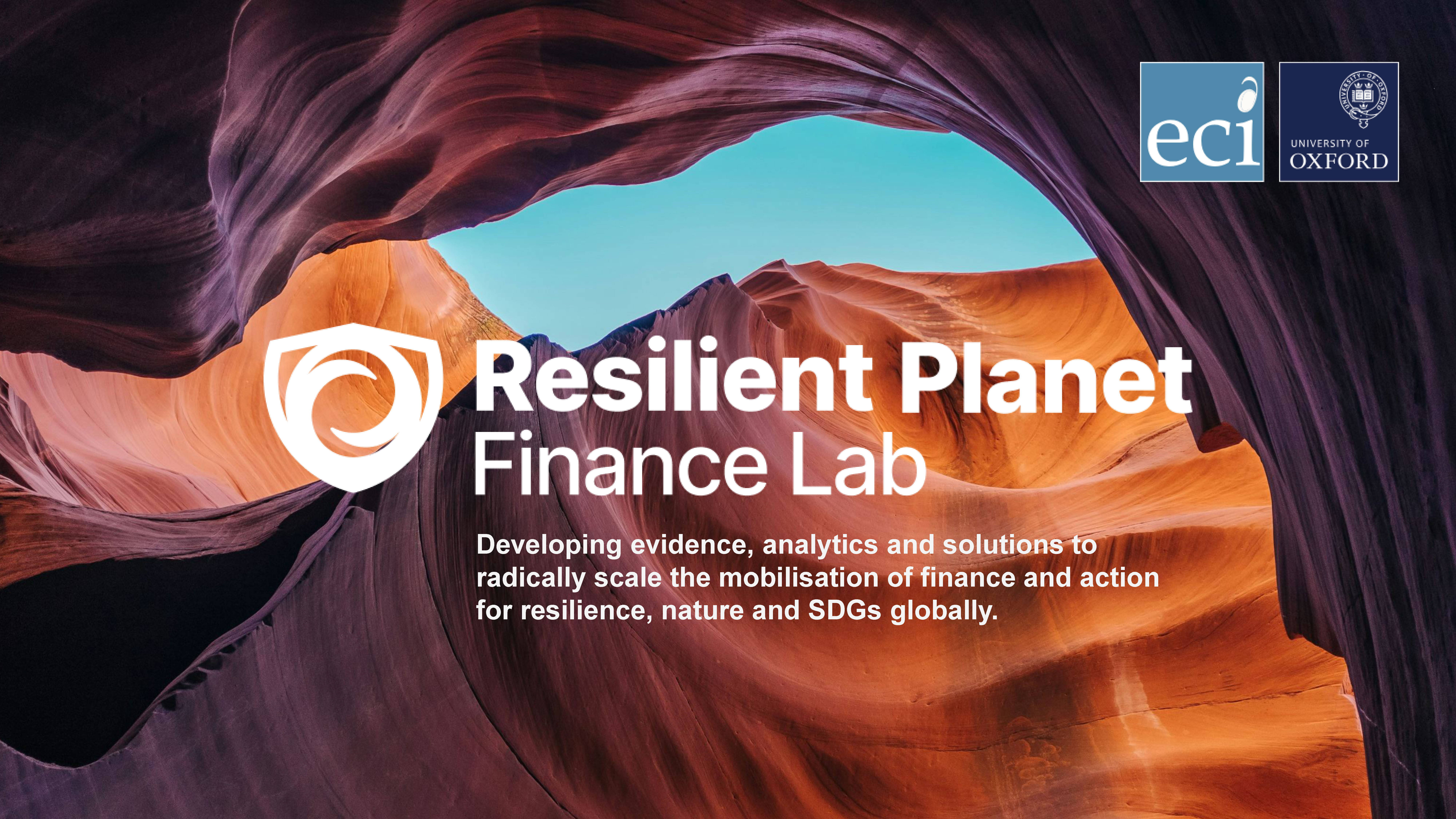The Resilient Planet Finance Lab is a research and innovation programme that aims to develop evidence, analytics and solutions to radically scale the mobilisation of finance and action for resilience, nature and SDGs globally. The Lab has global reach, working collaboratively with financial institutions, governments and others at all scales through solutions-focused sprints delivering policy outcomes, blueprint financial instruments and toolkits. The flagship platform of the Lab is the Resilient Planet Data Hub, co-convened with the Insurance Development Forum, UNDRR and the High-Level Climate Champions, providing world-leading data-driven metrics, tools, frameworks, and solutions for decision makers.
The Lab is Directed by Dr Nicola Ranger, hosted by the Environmental Change Institute at the University of Oxford, and works in partnership with researchers across the university and internationally. The Lab has received seed investments from NERC and Climate Arc.
The IPCC’s Sixth Assessment Report provided the most compelling, stark evidence of the growing challenges posed by climate and environmental change. Investing in resilience, including in natural capital, brings immediate benefits and is essential to drive transformative changes to manage future climate risks in our economy, food systems, cities, coastal areas, natural environment, and water management. Financing needs for adaptation in developing countries alone are estimated at USD 140-300 billion per year by 2030 (UNEP).
Resilient Planet Finance Lab is hosted in collaboration with the UNDRR, Insurance Development Forum and others with the goal of working across governments, financial institutions, international organisations and CSOs to help mobilise investment in adaptation, food, water, nature, infrastructure and social systems aligned with national goals. We work both at national and global scale with regulators, IFIs and governments to embed resilience into financial systems, as well as at more local scales to mobilise finance in particular sectors.
Our work
Our accelerator programme is backed by data, analytics and research including:
- Developing our toolkit for physical climate and environmental risk analytics, including modelling and analytics, such as the Global Resilience Index Initiative and our work as part of the UK Centre for Greening Finance and Investment and on stress testing and scenario analysis, including learning from the Bank of England CBES as well as collaborations with the World Bank and International Monetary Fund
- Advancing the economics of risk and adaptation, including quantifying the financial benefits of adaptation to governments and investors and designing new approaches to monetise these benefits to help mobilise finance for adaptation.
- Advancing risk analytics for extreme weather events, compound shocks and tools for decision making under deep uncertainty, and integrating within decision making
- Developing frameworks and metrics to help align finance with SDGs, adaptation and climate resilient development goals, including through our collaborations with OECD, the CFRF Adaptation Working Group and UNEPFI
- Exploring how to build financial and fiscal resilience, including through policy and regulatory frameworks, as well as financial solutions including risk financing insurance, risk pooling and catastrophe bonds.
- Analysing where policy interventions and public finance (including blended finance) can help to mobilise adaptation investment through setting the right enabling environment, such as our work on Mission Climate Ready for the UK, and with multilateral development banks and development finance institutions
- The role of Ministries of Finance and fiscal policies in resilience and sustainability, including measuring the alignment of fiscal policies with adaptation goals, pdf (1.1 MB, 37 pages).
- Developing new analytics and tools to identify and prioritise adaptation investments, and measure impacts, as well as design new financial instruments, with a focus on infrastructure and nature-based solutions in collaboration with the Oxford Programme for Sustainable Infrastructure Systems
- Analysing the role of disaster risk financing and insurance in building resilience, including how to mobilise capital to de-risk investments in adaptation.
- Advancing the global financial architecture, including development finance and fiscal policy, to align with resilience goals, including recommendations on how to make the global financial system shock-proof, underpinning a resilient net zero transition










